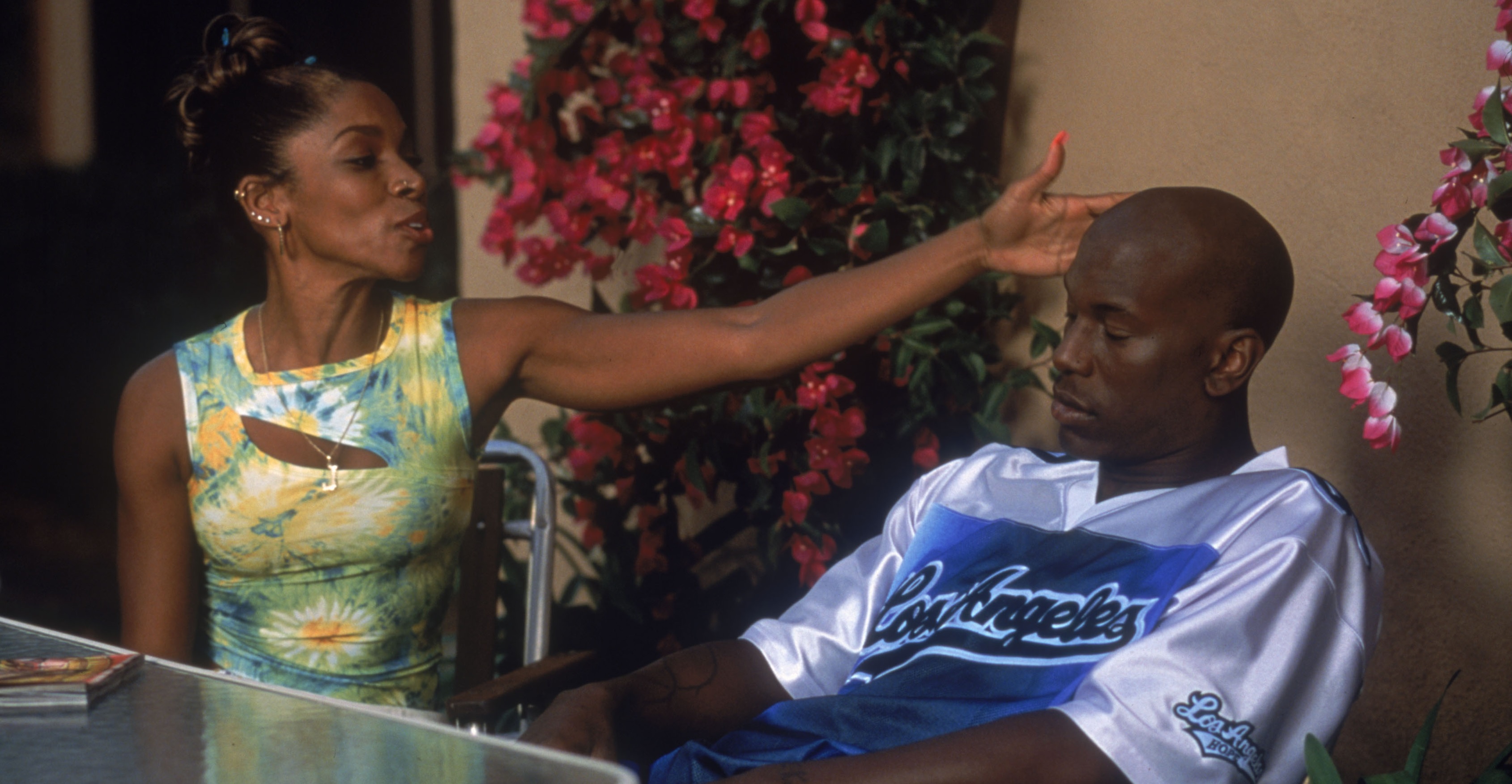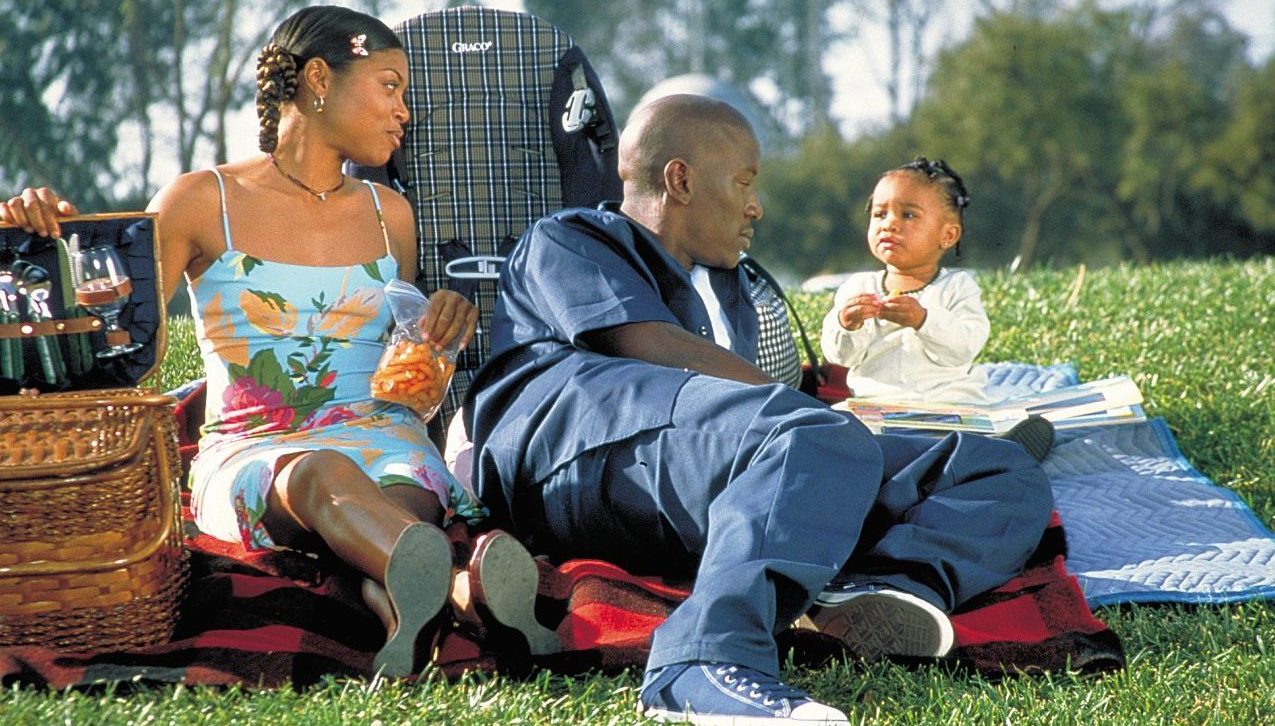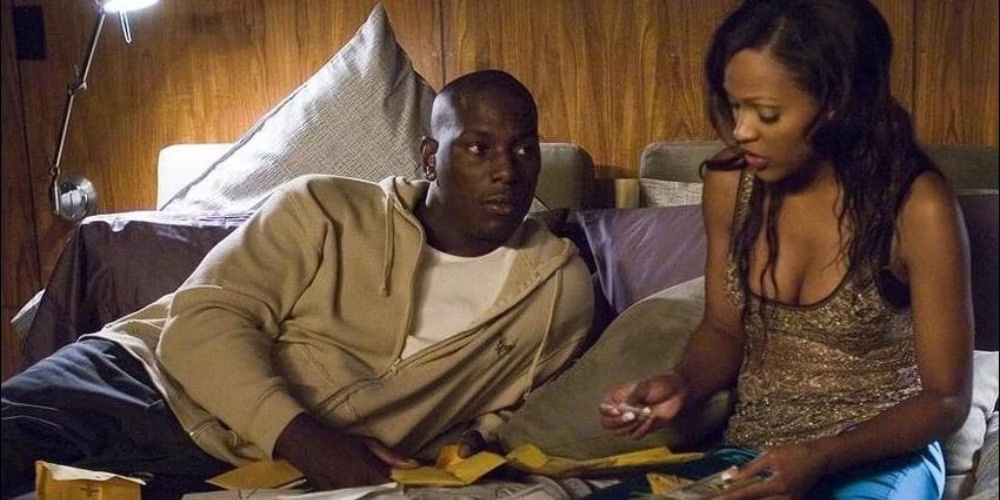Filmmaker John Singleton’s ‘Baby Boy’ is one of his most popular hood films, a genre he popularized with ‘Boyz N the Hood.’ The 2001 coming-of-age drama stars Tyrese Gibson in the lead role of Jody Summers, along with Taraji P. Henson, Ving Rhames, and Snoop Dogg, who appear in supporting roles. Set in South Central Los Angeles, the screenplay explores the lives of young African American men in a lower socio-economic environment. A 20-year-old man who still lives with his mother, Jody is haunted by the burden of the responsibilities of fatherhood and his many relationships, particularly with his girlfriend Yvette and ex-girlfriend Peanut.
Jody’s transition from adolescence to adulthood, dealing with the consequences of his actions and the expectations placed upon him, lays the foundation of a compelling and relatable narrative. The hood film also provides sufficient social commentary with its bold, convincing, and authentic discussions of urban society, exploitation amidst African American culture, abortion, the broader impacts of carelessness among youth, and the overall storyline. Like any other project by its director, the raw and realistic look of ‘Baby Boy’ generates curiosity regarding its roots.
Is Baby Boy Inspired by Real-Life Events?
‘Baby Boy’ is not based on true events or its makers’ personal experiences. Although a handful of its story elements are partially influenced by everyday scenarios of African American people living in lower socio-economic status. The screenplay, also written by John Singleton, offers plenty to think about through its treatment of serious issues such as infidelity, violence, and the absence of a father figure. The writer-director’s intent to showcase the unfiltered reality of life in the African American community turns ‘Baby Boy’ into a thought-provoking film.

As Singleton told The Washington Post, the idea for ‘Baby Boy’ originated from him witnessing young men meeting more youthful women at malls; the same men would end up in fights, which made their maturity an interesting subject to depict. “I get all my ideas for films basically from life, from watching people,” he remarked. “The idea from ‘Baby Boy’ came from me just sitting up in the mall watching kids in their early 20s talking to teenage girls and seeing these cats at the same time go from talking to the girls to getting into a fight in the mall. And I said, ‘I want to make a movie about a kid like that.’”
He also refrained from dubbing Jody an ideal protagonist but a dangerous loser any parent would want to keep their children away from. “A baby boy, you know, kind of like a dangerous version of a mama’s boy. My definition of a ‘Baby Boy’ is a kind of cat that would get your daughter pregnant and kill your son, so I wanted to make a movie about that.” Singleton prepared notes and played with ideas for years before finishing the screenplay in another four months. His observations are evident in the messages and the assumption that racism might not be the only cause of the mistreatment of Black youth.
The script calls out such men for their recklessness—carelessly producing children and using women for pleasure rather than settling down with suitable partners and taking care of unemployment—highlighting their role in bringing such misfortune upon themselves and others. In an interview with the Los Angeles Times, Taraji P. Henson also spoke about the film’s relatability, quoting, “That still resonates for people.” She said, “That stuff is still going on, kids getting murdered in the streets. But ‘Baby Boy’ reminds people of themselves, even to this day.”
Baby Boy Explores Raw Realities of Motherhood and Fatherhood
‘Baby Boy’ highlights another pressing issue in society: unplanned pregnancies and the societal and individual challenges that come with them. The very first scene of the film demonstrates the case for parental differences as Jody wants to take an easy way out, taking Yvette to an abortion clinic. The character of Yvette is a central figure in Jody’s life and the film’s exploration of themes. Her relationship with Jody has been lost in the oblivion of infidelity and mistrust, raising the already difficult responsibility of parenthood. Through Yvette’s experiences, John Singleton presents the harsh realities faced by many young women as they enter motherhood.

The movie chooses unique ways of tying up its subplots — Jody’s daughter Lil’ Nut from another relationship and his mother’s ex-convict boyfriend — all of which motivate Jody to realize the bigger picture and sort out his life. His indecisiveness in deciding on a romantic partner poses a threat to the upbringing of his own children, pulling in many more lives under the clouds than just his own. In his quest to eliminate the wrongs from the rights, Jody ends up dealing with the generational consequences of fatherless homes, a chain he desperately needs to break rather than running away.
‘Baby Boy’ underscores the importance of one’s own participation and willingness to deal with their emotional vulnerabilities, advocating for personal growth and accountability. Jody’s conflict of differences and resentment towards his mother and her boyfriend offers a nuanced look at familial instability and the effects of a piece of long-lasting emotional baggage. These interactions prompt Jody to fuel his own efforts as a father and partner, accepting the adult traits of growth, responsibility, and compromise. Gibson, who had been raised by a single mother himself, added a touch of subtlety to his portrayal, providing ‘Baby Boy’ with another layer of realism.
Read More: Baby Boy: Where Was the 2001 Movie Filmed?


You must be logged in to post a comment.